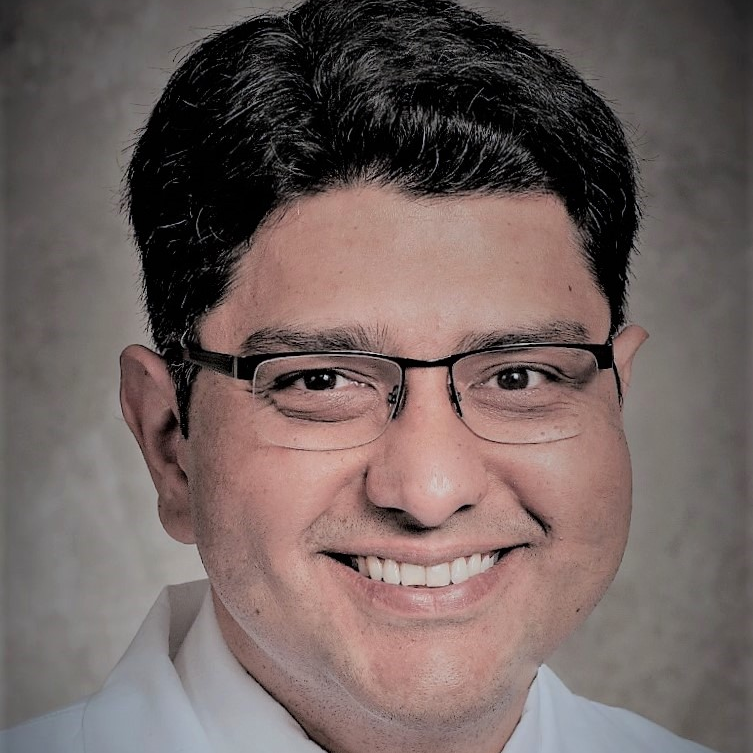Lymphoma Clinical Trials
A Conversation with Dr. Farrukh Awan
Explore how to approach learning about what clinical trials might be the best options and how to discuss them with your doctor, from the perspective of blood cancer specialist, Dr. Farrukh Awan.
Dr. Awan, an associate professor and hematologist-oncologist at UT Southwestern, is a member of several professional organizations, including the American Society of Clinical Oncology (ASCO) and the American Society of Hematology (ASH). He is also the recipient of the Young Investigator Award from ASCO and has published on many topics, including ibrutinib and acalabrutinib.

- How can a patient know what the right clinical trials are for them?
- How do you talk to your patients about clinical trials?
- Giving patients time to make a decision
- Clinical trial screening process
- Process of starting a clinical trial
- What’s your approach with patients in shared treatment decision-making?
- Getting a second opinion
How can a patient know what the right clinical trials are for them?
That’s a great question. For any trial, I think the biggest thing that I would like to stress is to have a discussion with your physician.
We need to lay down all the options on a piece of paper, trial options, and non-trial options. The options that are available right now standard of care options.
Then we need to go through trial by trial and option by option to really see where it fits with the patient’s state and stage of the disease, and the side effects and the patient issues. Maybe the patient has heart disease, lung disease, or kidney disease, diabetes, hypertension – all those factors are important.
How do you talk to your patients about clinical trials?
It’s a marriage of patient preferences and the options that the doctor gives you. There is no one-size-fits-all. For my patients, it’s always an ongoing discussion.
Once we decide, okay, fine, these are our one or two options, we narrow it down, we talk about the pros and cons.
Ultimately, the patients are not trained to make that decision. We as physicians are trained to help them make that decision. My job is to help them make a decision that they will be comfortable with and that there won’t be any regrets later on that I should have done this or I should have done that.
I think that is really the key. I think that establishes a trust with my patient. I need to help them make that decision for themselves, which they are comfortable with.
Giving patients time to make a decision
We look at all the factors that we have. I then give them the pros and cons of everything, and then I ask them to go home. I even give them the consent from some time after clinical trials. I give them reading material, educational material on the drugs that we’re talking about if it’s a standard of care.
I say, “You know what? You need to go home, you need to sleep over it, and then tell me what you want to do tomorrow. or a day after, because I don’t want you to make a decision on the spot.”
This is a difficult decision and maybe they would like to get another opinion. Maybe they would like to talk to their family before they make that decision. These are all factors that go into making a decision and once the patient is satisfied that this is the right thing we discuss again, and then we start.
Clinical trial screening process
Every trial has what we call a screening process. Basically, you have to go through a battery of tests to make sure that you’re eligible. For example:
- Is a patient 18 years of age?
- Is the patient able to understand?
- Are they able to swallow pills, and so on?
- Is the female pregnant or not?
All of those factors, I need to check off all the boxes. Kidneys are good. Liver is good, whatever the requirement is for that particular trial and then we get all of that back together.
Process of starting a clinical trial
If the patient qualifies, then we come up with a start date and most of these trials need scans and biopsies and so on, so it just depends on the trial that you’re looking at.
That’s roughly the process from start to finish. Depending on the trial, it can take two to three days, five days. Sometimes it can take four weeks, but usually, it’s in between one to two to three weeks that we can start and then get the patient started on a trial.
Now, in some cases, obviously, if the disease is very aggressive, we would have to move early and those are unique situations. We have to deal with those situations, but for the most part, it takes around two to three weeks to get on a trial.
What’s your approach with patients in shared treatment decision-making?
I think if the patient is satisfied, if the patient is compliant, that makes it so much easier to take care of them. If they trust you, that is really the key for me. I would want to trust my physician if I was in their situation.
If there’s any doubt, if there’s any shred of second guesses, I always feel that you need to address that because I feel that their regret of a commission is less than the regret of permission. You have to do that stuff and address these issues before you get started on any treatment.
It doesn’t matter if it’s a clinical trial, it can be standard R-CHOP chemotherapy, or R-EPOCH chemotherapy.
If the patient is comfortable with the plan, you will always have better outcomes. You’ll have more compliant patients. You will have a good relationship with your patients. They trust you. You trust them to show up on certain days and do things like you want it to be done.
I think that really is the key – it’s a trust relationship at the end of the day. If there’s any problems with that without fixing it, you will not have a healthy patient-provider relationship.
That’s what it’s all about really because we’re not talking about one day or two day, I get a surgery done and move on. As long as the healing is fine, I may not ever have to see the surgeon again.
Our patients have to be seen on a weekly basis for months and months and months. Sometimes they’re in the hospital for days and days. We develop a bond with our patients.
Getting a second opinion
It’s extremely important to start off on the right footing. If that means getting a second opinion, by all means, whatever provides you peace of mind, that is the key.
That is really where I’ve spent the most time up front because I feel that that’s an investment in that patient-provider relationship for me.
